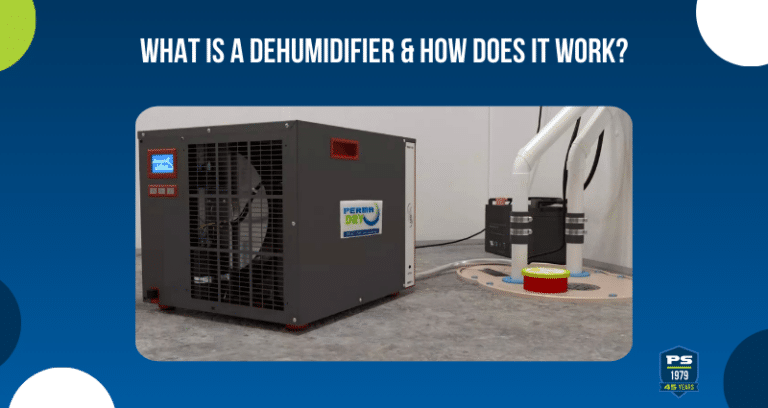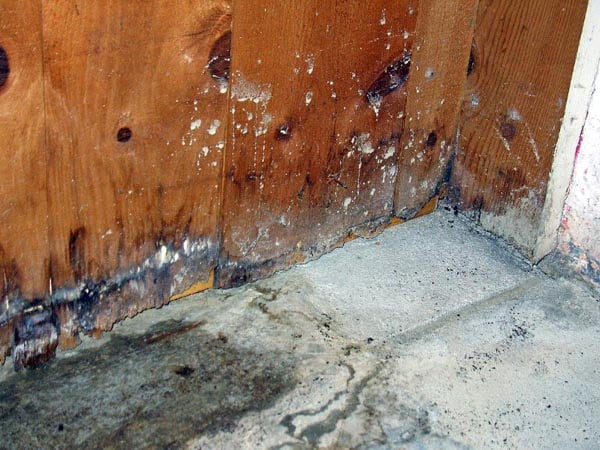
If your basement feels damp, smells musty, or shows signs of condensation, humidity is likely the culprit. Basements naturally attract moisture due to their underground location, lack of airflow, and surrounding soil. Left unchecked, excess humidity can lead to mold growth, structural damage, and poor indoor air quality.
Why Do Basements Get Humid?
Basements are prone to moisture buildup for several reasons:
- Cool Temperatures & Condensation – Warm air from outside or upstairs enters the cooler basement and condenses into water droplets on walls, floors, and pipes.
- Soil Moisture – Rain and melting snow saturate the ground around your home, allowing moisture to seep through tiny cracks or pores in the foundation.
- Poor Ventilation – Basements often have few windows or airflow, causing trapped moisture to linger.

How to Tell if Your Basement is Too Humid
High humidity isn’t just uncomfortable—it can damage your home and impact your health. Watch for these common warning signs:
- Musty or mildew odors
- Condensation on windows or pipes
- Damp spots on floors or walls
- Peeling paint or efflorescence (white, chalky residue)
- Increased allergy or asthma symptoms
Ideal Humidity Levels for Your Basement
The ideal relative humidity (RH) for a basement is between 30-60%. Once it rises above 60%, mold, dust mites, and bacteria can thrive.
You can check your basement’s humidity using a hygrometer, an affordable device that measures moisture levels in the air. If readings show close to 60% or higher, it’s time to take action.
- Prevents Mold and Mildew: By maintaining lower humidity levels, dehumidifiers inhibit the growth of mold and mildew, which can cause health issues and damage property.
- Improves Air Quality: Reducing moisture decreases dust mites and allergens, contributing to better respiratory health.
- Protects Home Structure: Controlling humidity prevents wood from warping and paint from peeling, preserving the integrity of your home.
- Enhances Comfort: Lower humidity levels make indoor environments more comfortable, especially in warm climates.
For optimal performance, it’s essential to choose a dehumidifier suited to your space’s size and specific humidity conditions. Regular maintenance, such as cleaning filters and emptying water reservoirs, ensures the unit operates efficiently.
Understanding how dehumidifiers work and their benefits can help you make informed decisions to maintain a healthy and comfortable indoor environment.